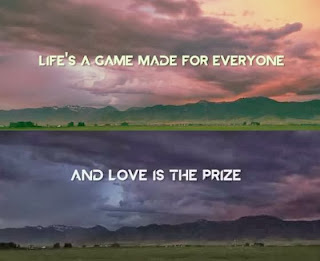the UK paper The Sun
was printed as The Son.
The unique issue of The Son
marked in the English language
the expression of a historic fact:
the birth of the future King of England.
The birth of the new prince in the 22 of July - date which coincides with my birthday by the way - triggered a social response that reminded me of the opening of The Lion King (1994).
Papers and other media was showing off the newborn to the whole of UK.
Judging by some signs I could spot, The Son was not the only expression of appreciation toward that fact.
'Congratulations to
T' Duke & Duchess of Cambridge
on the birth of their beautiful baby'
Sign at Marks&Spencer at
Oxford Street in London.
Also, The Son wasn't the only UK paper that used English wittily to express the uniqueness of that moment. Other papers - writers actually - did the same by using some peculiar remarks.

This expression, I assume, is used to highlight the fact that the newborn is a boy - thus, future heir of the throne.
Oh Boy! which a colloquial exclamation, however more informal,
became another option to highlight the same fact in headlines.
Allusions to titles couldn't be left out.
Daily Mirror was ahead of the queue
to snatch the fancy (and obvious) choice
for the title of the classic French novella
The Little Prince (1943).

The Sun is left to allude to the
american sitcom starred by Will Smith
The Fresh Prince of Bel-Air (90's).
Fresh Prince is actually the rapper name that Will Smith gave to himself.
The Son, in its unique online issue,
had been more daring in the choice of its allusion.
Replacing Eagle for Regal is one among the abundant
occurrences of oddities that appear in the headlines of UK papers.
Eagle and Regal - save for the initial r-sound in Regal - sounds the same.
 'The Eagle has landed' uttered by Neil Armstrong right after the moon landing of the Apollo 11 mission (1969) - already became title of a Book (1975). 'Houston. Tranquility Base here. The Eagle has landed' is the full sentence uttered by Armstrong.
'The Eagle has landed' uttered by Neil Armstrong right after the moon landing of the Apollo 11 mission (1969) - already became title of a Book (1975). 'Houston. Tranquility Base here. The Eagle has landed' is the full sentence uttered by Armstrong. In the dawn of 25th of July, after the royal baby's name is revealed, UK papers can't miss that chance to employ their creative English. Boy George not only recalls the baby's gender, but also reminds the name of another British celebrity.
In the dawn of 25th of July, after the royal baby's name is revealed, UK papers can't miss that chance to employ their creative English. Boy George not only recalls the baby's gender, but also reminds the name of another British celebrity.
Daily Express took the lead to pick the cleverest expression on the name.
is itself a deviation of another phrase, exactly By Jove!
By Jove! is used for emphasis or to indicate surprise (OED).
By George / By Jove are mild forms of swearing in a way that avoids the word God (read Grammarphobia).
Nothing really spells 'news' more than the new uses of old expressions in English. And the newborn royal certainly brought the best of English to the UK papers.







.jpg)





























